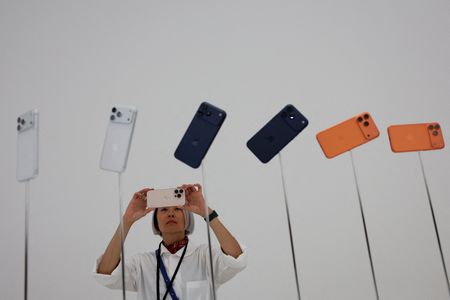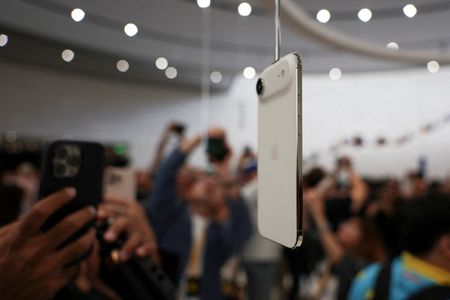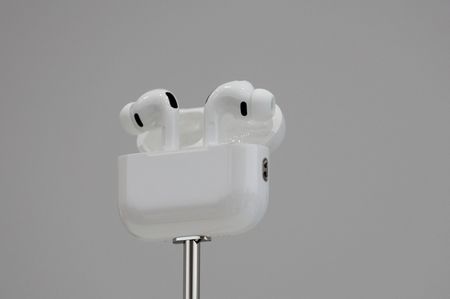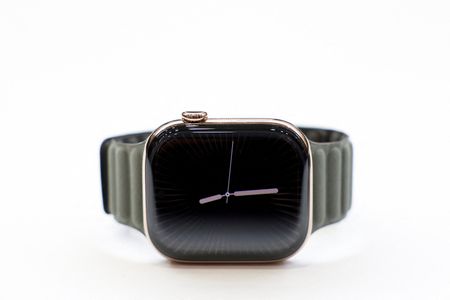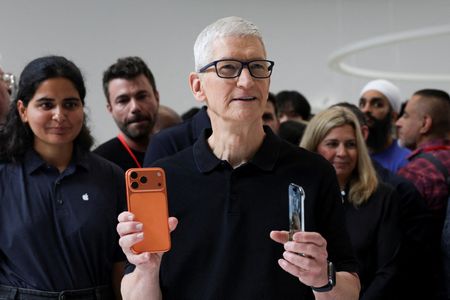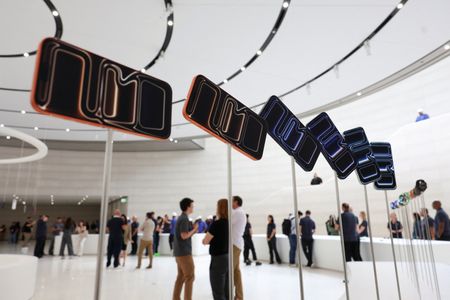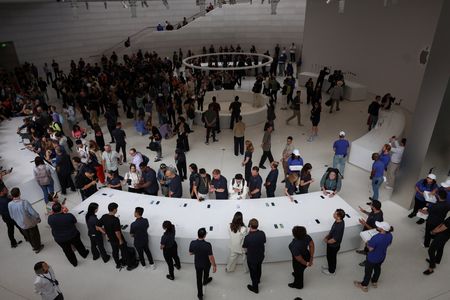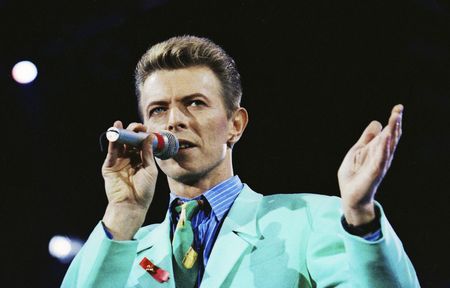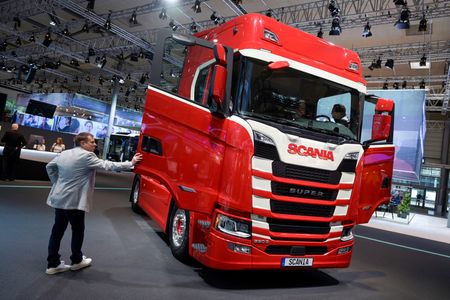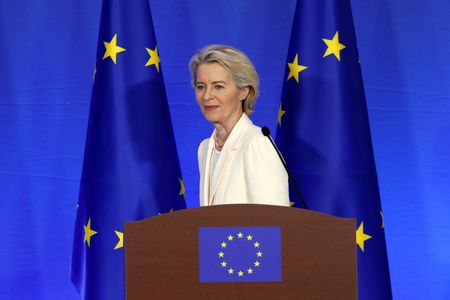By Stephen Nellis and Aditya Soni
CUPERTINO, California (Reuters) – Apple on Tuesday introduced an upgraded line of new iPhones, including a slimmer iPhone Air, and held prices steady amid U.S. President Donald Trump’s tariffs that have hurt the company’s profit.
The iPhone Air comes with a high-density battery and a brand new processor, and will be priced starting at $999. Wall Street had been watching to see whether the company would increase the price of iPhones, or seek alternative routes to make up for tariff costs, such as increasing the cost of iPhone versions with more storage.
The model was the star of the company’s annual product launch event, with CEO Tim Cook saying “we’re taking the biggest leap ever for iPhone.” Apple called it the most durable iPhone yet. It will use the A19 Pro, a processor chip that it said it had tweaked for better energy efficiency and performance to match the device’s thinner battery. Rivals including Samsung already sell phones marketed for their extremely thin profile.
The iPhone Air’s price is slotted in between the company’s other models, as analysts had predicted. Apple also launched the iPhone 17 and iPhone 17 Pro, the latest upgrade to its flagship smartphone, as well as a new version of its AirPods Pro wireless headphones and a blood pressure monitor in its latest Apple Watch.
A 256-gigabyte version of the iPhone 17 base model will start at $799, the same as the previous iPhone 16 model with half the storage space. The iPhone 17 Pro will start at $1,099 for a 256-gigabyte model, the same as the previous year’s model with the same storage size, but without the option of a smaller-capacity phone at a lower $999 like the iPhone 16 Pro.
Apple did not raise the price on watch models or the new AirPods Pro 3 either.
The prices were an indication that Apple was ready to swallow the cost of tariffs to ward off competition from Samsung, Alphabet’s Google and domestic rivals in China, even as it has predicted that the levies would cost it more than $1 billion in the current fiscal quarter.
Apple shares were down 1.6% after the company announced pricing of the smartphones.
“They’re leveraging their scale to try to keep prices where they are,” said Tom Mainelli, head of IDC’s Device & Consumer Research Group. “I think Apple, like most tech vendors, are acutely aware, particularly in the U.S., that tariffs are going to impact consumers’ ability to spend in the second half of this year. So … they’re going to hold a line on prices and try to make it possible for people to upgrade between now and the end of the year at the same price as last year.”
The iPhone Air will go head-to-head against Samsung Electronics’ Galaxy S25 Edge, and analysts told Reuters it could be a stepping stone toward competing with Samsung’s folding phones, which are in their seventh generation. A foldable phone is important for Apple to appeal to customers in China, where consumers like foldables and the company has been losing market share.
“This new device will bring a sense of newness to the iPhone, which has remained the same for too long,” said PP Foresight analyst Paolo Pescatore. He said the “new and much-improved iPhone line-up looks impressive, which puts (Apple) in a strong position to cater for different segments.”
BLOOD PRESSURE MONITOR
The event was light on commentary on how Apple aimed to close the gap with the likes of Google, which has used its latest flagship phones to showcase the capabilities of its Gemini AI models. The company has leaned on a partnership with ChatGPT creator OpenAI to power many AI features on its devices.
Apple sidestepped “the heart of the AI arms race while positioning itself as a longtime innovator on the AI hardware front, with silicon and device-level integration,” said eMarketer analyst Gadjo Sevilla.
Apple said the iPhone Air will also feature a new “N1” chip to handle Wi-Fi communications and new “C1X” modem for cellular data. Chips for those functions in Apple’s premium devices were long supplied by Broadcom and Qualcomm, whose shares were down 2.3% and 1.1%, respectively, late on Tuesday afternoon.
“This is MacBook Pro levels of compute, in an iPhone,” Tim Millet, one of Apple’s chip executives, said during the presentation at the company’s Cupertino, California, headquarters. The iPhone Air will have two cameras and eliminate the physical SIM card slot, freeing up more room for battery capacity.
Apple said the base model iPhone 17 will have a brighter, more scratch-resistant screen. It will also have a better front-facing camera with a differently shaped sensor to make horizontal selfies look better.
The new AirPods Pro 3 will feature live translation of languages. Apple also said that if both people in a conversation are wearing the new AirPods Pro 3, the earbuds will translate conversations in near real time.
The blood pressure monitor feature is pending regulatory approval, Apple said. The watch will not detect every case of high blood pressure but the company said it expects the feature to notify 1 million people and will make it available in 150 countries.
(Reporting by Stephen Nellis and Aditya Soni in Cupertino, California; Additional reporting by Akash Sriram in Bengaluru; Editing by Sayantani Ghosh and Matthew Lewis)

